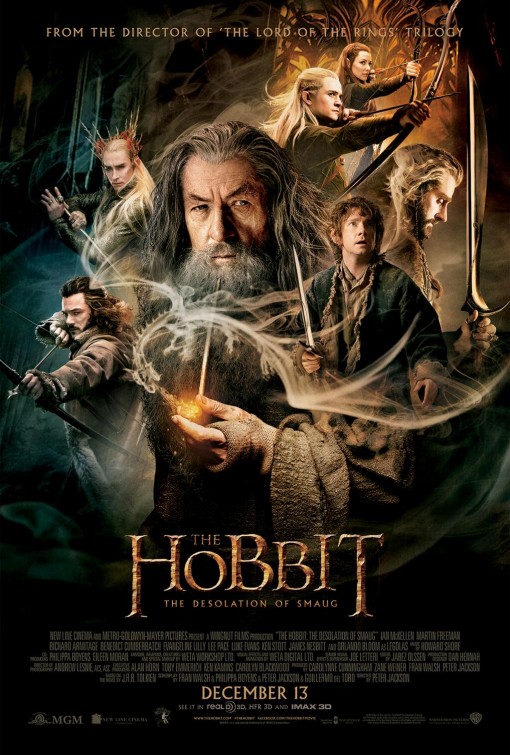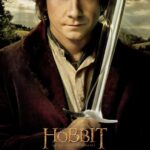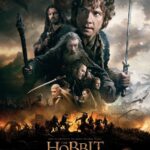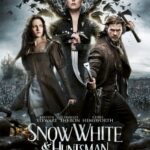Beyond Darkness, Beyond Desolation, Lies The Greatest Danger Of All
Director
Peter Jackson
Starring
Martin Freeman
Richard Armitage
Ian McKellen
Benedict Cumberbatch
The Desolation Of Smaug’s story picks up immediately after the first instalment. Thorin’s [Armitage ] company of dwarves are still being pursued by Azog and his orcs and take shelter in the home of a skin-changer named Beorn. After that Gandalf [McKellen] leaves the group and the rest venture through the dark and twisted forest of Mirkwood. There they encounter spiders and elves and eventually a lake community of humans; the closest settlement to the Lonely Mountain. I already hate doing the synopses for The Hobbit films. Much like the book, it’s just a long string of events with lots of running in between: and then they get captured by elves and then they escape in barrels and then they go to Lakewood and then they go to the lonely mountain and then they can’t get in and then they fight Smaug, etc. You get the idea.
A lot of people were surprised that I liked The Hobbit: An Unexpected Journey as much as I did. Throughout its troubled production I was whining about how much I dislike the book and therefore was expecting nothing of the film. But the second the titles appeared and Howard Shore’s simplistic mirthful harmonies emanated from the cinema’s speakers, I was immediately hit with a sense of nostalgia. And I believe it’s this low expectation that enhances and elevates my enjoyment of these movies. Many cinemagoers and purists moan about the extra elements and additional plot points. Personally, I appreciate the fullness and filling in of the gaps – specifically where the hell Gandalf keeps buggering off to. Furthermore, The Hobbit isn’t trying to be The Lord Of The Rings, Tolkien merely salvaged and recycled the best thematic elements from his light hearted fantasy adventure and poured them into his massive fantasy epic. The problem lies with the source material, not the interpretation of it. But that doesn’t help a movie that is desperately trying to compete with the Citizen Kane of the fantasy genre. No matter how much we see, no matter how great the spectacle, it can’t top the scale of anything in The Lord Of The Rings. But the second you put that trilogy out of your mind, it is entirely possible to enjoy this movie in its own right.
If I’m honest, the whole movie can be broken down into four or five talking points (two of which I’ll cover in my highlighted character and scene segments below). Firstly, we need to discuss the dwarves; I’m still no more familiar with most of Thorin’s company. I know Thorin, Balin, Dwalin and the two young ones (Fili and Kili) then it gets a little tricky.. and I remember that James Nesbitt’s in there and one of them is very fat and another is Gimli’s dad and then it just descends into an unrecognisable mess of hair and grunts. This kind of character underdevelopment guarantees a sense of frustration and facelessness that kills any suspense or drama. It’s especially odd, considering the dwarves are considered the central roles and yet I can’t even confirm that every one of the thirteen has actually had a single line of dialogue. The action sequences feel a tad more realistic but still suffers from, what can only be described as, Jackson physics: in which characters can fall great heights, get shaken about or hurled, burned, stabbed, punched or submerged without incurring any real physical damage. Point in case, when the dwarves escape the elven dungeons in barrels, pursued by both elves and orcs (which quickly becomes a theme park rapids ride), one could easily question the plausibility of any frame of the suggested action. But a story about dragons and hobbits should always require the audience to suspend a fair amount of disbelief.
The opening forty minutes were rather disjointed but for a story told in medias res, that’s to be expected. Thankfully, once the dwarves and their burglar turn up in Mirkwood, the plot really starts to find its feet. Which brings me to the second talking point: the elves. Briefly alluded to during the prologue of An Unexpected Journey, we know that the dwarves are distrustful of the wood elves (led by their king, Thranduil [Lee Pace]) but we kind of write that off as cantankerous dwarfism. It’s only when Thorin is brought before the elven king by Legolas [Orlando Bloom] and Tauriel [Evangeline Lilly] that the extent of their arrogance, racism and elitist selfishness really comes forth – and I like that elves are bastards. Tauriel (an entirely original creation) is an interesting character and Evangeline Lilly is an infinitely more appealing and appropriate elf than the wilting, fart-breathed Liv Tyler. But all of that is pretty much undercut by shoe-horning a potential relationship (or at least implied feelings) between her and the most human-looking of the dwarves. It really shouldn’t have pissed me off – I’m not speciesist, well.. maybe I am, who knows – but I just hated it. Does this movie need a romantic element? No, not really. But then, life is littered with inconsequential romances and to ignore that makes the story a very two dimensional one (again, problem with the book, not the film).
Then we have the humans, the townsfolk of Lake-town; a group of impoverished people who live under the oppressive rule of the Master of Lake-town [Stephen Fry]. Suffering the loss of trade after the fall of the dwarven city in the Lonely Mountain, the once busy harbour is now a shadow of its former self. And in amongst the crowd is Bard [Luke Evans], descendant of the king of Dale, who failed to destroy Smaug and watched as the city of Dale was destroyed. By this point, we all want the dwarves to just get to the mountain so we can see the bloody dragon, so the similarities between the weasely vizier and the weasely vizier in The Two Towers, and Bard and Aragorn grate just enough that you kinda don’t care. Personally, I think Evans does a great job, as does Fry but they exist to suffer and as we have to wait for Lake-town to get owned by the dragon, their presence is more of an annoyance than anything else.
People expect a great deal from these films and subsequently walk away disappointed or angry. But despite the lengthy story, the excessive action sequences and additions/embellishments that weren’t in the book, these films are still vastly superior to the majority of dross that gets released. Every kid-friendly adaptation that has tried to be the next Harry Potter has failed miserably to rouse and captivate audiences – Percy Jackson & The Olympians: The Lightning Thief, The Seeker: The Dark Is Rising, The Golden Compass, the list goes on. And sure, Jackson likes his silly fights and investigating side-notes that nobody knew or cared about and revelling in the fictional world of Middle Earth and bringing back quotes, cameos and other call-backs from the last trilogy but who cares? He’s doing a damn sight better than most people would and I, for one, can overlook a few complaints and frustrations, if it means I get to enjoy a quality, high-budget fantasy adventure.
Release Date:
13th December 2013
The Scene To Look Out For:
As stated earlier, there are two additional talking points of merit. Bilbo and Smaug. I completely agree with Jackson’s statements that Martin Freeman was the only real choice to play Bilbo. Rather than simply mimicking the mannerisms of Ian Holm, Freeman’s Bilbo is a complex individual, struggling with acceptance and fear. More than that, he is now battling with addiction. Having been ambushed by the spiders of Mirkwood, Bilbo manages to elude them long enough to distract and kill a few. In doing this, however, his previous innocent fumbling with a blade is replaced with venomous maliciousness. At one point, he brutally massacres a trapdoor spider, then gloats to the butchered corpse, “Mine!” before staring at the ring in a trance. But it’s only when he comes to his senses and realises the ring’s effect and hold on him that you really appreciate how wonderful this performance is.
Notable Characters:
**Tiny hinted spoiler**
Cumberbatch as Smaug. First of all, the dragon needed to be bloody impressive. Having sat through four hours of story, anything short of excellence would have crippled this film and the entire franchise. Thankfully, it was so very worth the wait. The movements and CGI are nice but Cumberbatch is Smaug. The tones, the inflections, the arrogance, the malevolence, it’s all delivered in a delicious cavernous voice that chills and enthrals. Ending the film the way Jackson did took a lot of guts but from a narrative point of view, I completely understand his choice. After all, who wouldn’t want more Smaug?
Highlighted Quote:
“Da, why are there dwarves coming out of our toilet?”
In A Few Words:
“Another solid outing in Middle Earth that does exactly what it should by accelerating and heightening the story whilst serving as more than just the middle chapter of a bigger tale”
Total Score: 2/5

![The Red Right Hand Movie Reviews [Matthew Stogdon]](https://reviews.theredrighthand.co.uk/wp-content/uploads/2021/12/cropped-header1.png)



